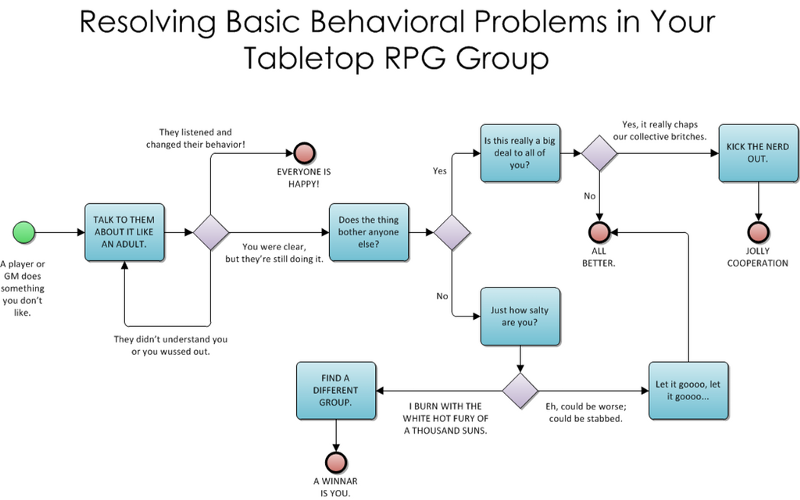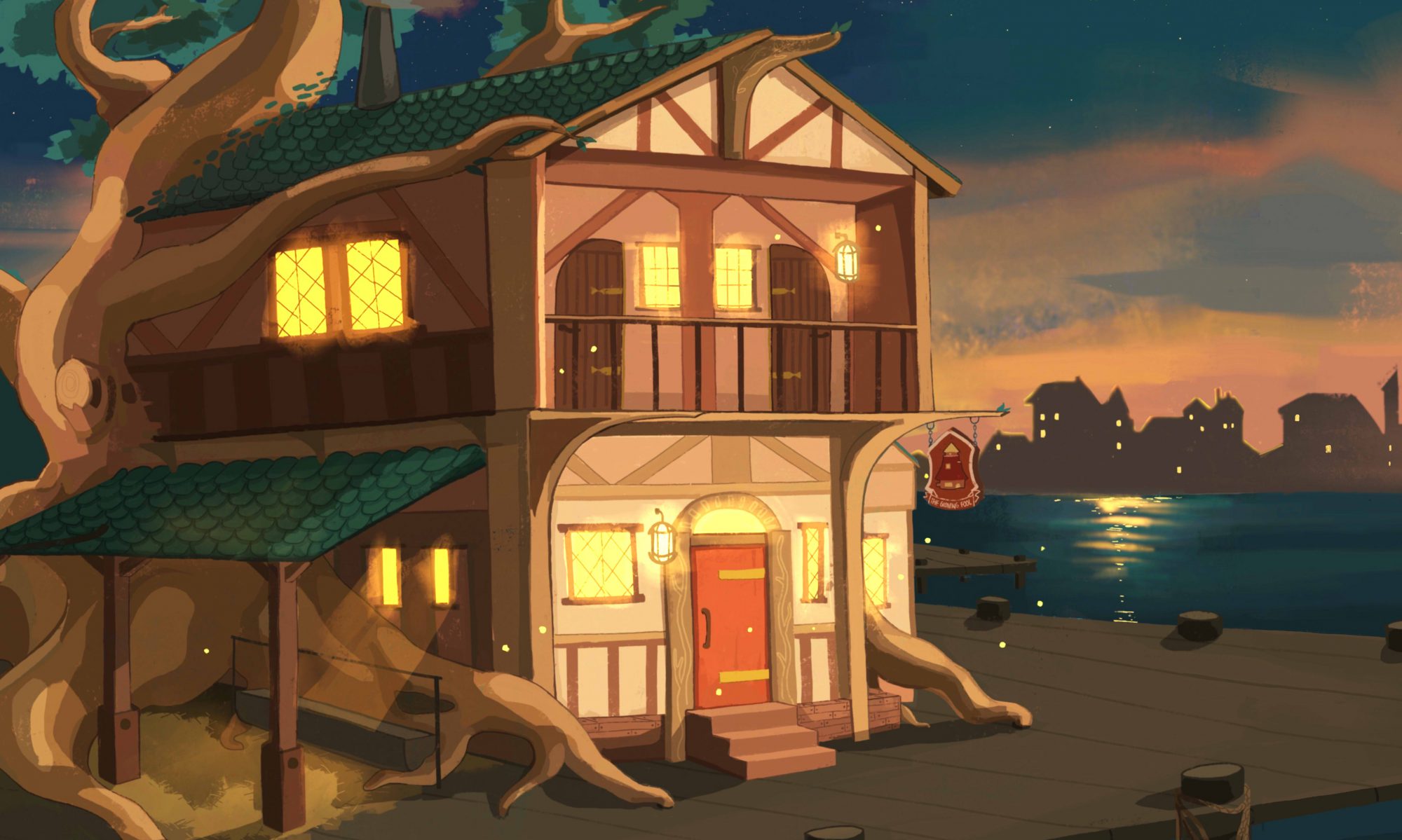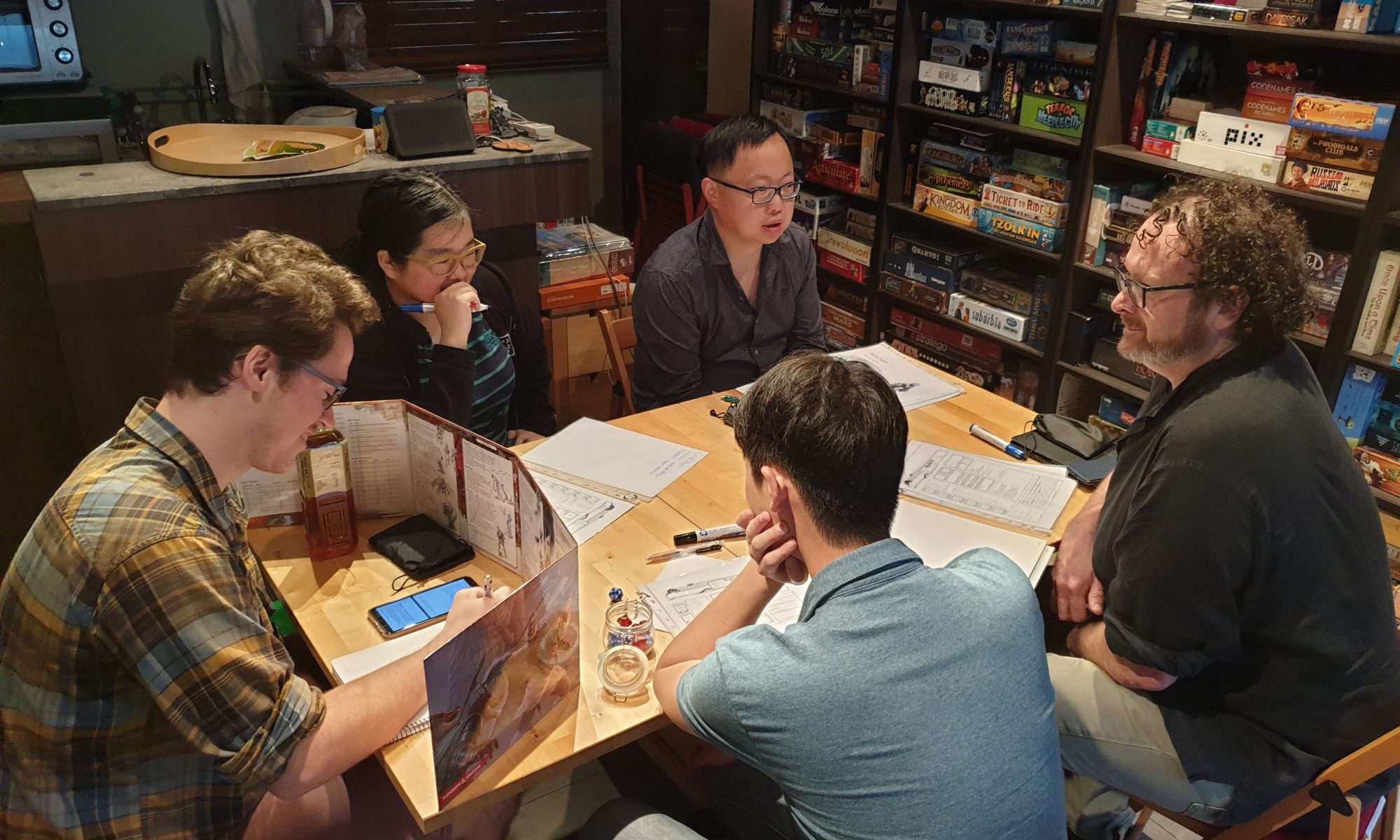As far as games go, Dungeons & Dragons is quite unique in its approach. Logistically it is very different from video games or traditional board games. Whereas board games only last for maybe an hour or two and are fairly isolated events, a typical D&D campaign can span anywhere from a single session, to years of weekly sessions. Each session being a continuation of the previous one, and usually with the same group of people. Playing D&D can be seen as a significant time commitment and investment. And because of that, the larger D&D community has slowly built up a (mostly unwritten) body of social etiquette that players hopefully take heed whenever they join a D&D campaign.

While different groups have their own different rules and expectations, there are some themes that are fairly consistent across all the different groups. And that is what we will mostly be touching upon here.
The purpose of this game is to have fun
First and foremost, the most important thing to remember about D&D, is that it is a game. And that as a game, it’s meant to be an enjoyable experience for everyone involved. It is always advisable to talk with your friends, and make sure that the gaming table that you are all building together is one wherein everyone feels comfortable, and ready to have a great time.
On top of being a game, D&D is also a collaborative game. You are all (DM included) working together to have a good time. This game shouldn’t be seen as being one of “player vs. player” or “DM vs. players”, you are all collaborating to create a shared epic adventure.
However, if some conflicts at the table do come up, rather than ignoring it, your best approach will always be to try and address it like adults. A reddit user, /u/The_Unreal, came up with a very helpful flow chart that will hopefully guide you in addressing these issues as they occur.

Your characters should be able to work together
One of the best things about D&D is being able to create your own character. You have the freedom to create your own version of a bad-ass adventurer that goes off into the wild unknown for treasure and glory. Ideally though, one thing that you ought to keep in mind when creating your character, is that regardless of how awesome and powerful they are, they are still a member of a group, and they have to work with the other characters of the other players.
“Your characters don’t have to like each other, but they have to be able to work with each other”.

However, this doesn’t mean that your character has to be a “push over” and totally subservient to the party. They can still have their own conflicting goals, their own secrets, and their disagreements with the rest of the party. They can still be a character that is capable of standing on their own two feet. In fact, disagreements between party members contributes a level of drama that makes the game more interesting for everyone. But those character conflicts have to be balanced out with some level of realization on your character’s part, that they are more likely to accomplish their goals if they were to work together with the party, as opposed to running off alone. One thing that I like to say about this is that “your characters don’t have to like each other, but they have to be able to work with each other”.
Know your character
D&D can be a very rules-heavy game. Absolute mastery of the rules isn’t really a requirement for new players. Most DMs wouldn’t expect anyone playing this game for the first time to immediately know all the in’s and out’s of this game. In fact, sometimes, DMs will play “fast and loose” with the rules in favor of keeping things moving along. Don’t feel like you have to have the entire Player’s Handbook (PHB) memorized in your head.
However, that being said, a player that is familiar with the rules is always appreciated, since they help keep the session flowing seamlessly. Rather than feeling the need to memorize the PHB in its entirety, just try and familiarize yourself with some of the basic rules, such as the basic concepts of D&D (PHB, p. 6), how combat works (PHB, p. 189), and what you can do during combat (PHB, p. 192). It would also help if you familiarize yourself with what your character can or can’t do (this is tied to their race and class, check the PHB table of contents).
There are lots of resources online to help you get started. The series “Handbooker Helper” by the folks of Critical Role, is particularly helpful.
This is by no means meant to be an exhaustive list of everything to keep in mind when joining a D&D campaign. But hopefully it gives you an idea of what makes a constructive player at the table. The main idea here, is to always be respectful of the time and effort that everyone is putting into playing. This can come in the form of being polite to the other players when they bring something up. It can come in the form of being punctual to the session because everyone took time out of their busy schedules for the game. Or it can just be in the form of being a good friend.
Earl is what you would call a Dungeons & Dragons addict. He watches D&D shows, prowls the D&D forums, and basically lives, breathes, and eats D&D (It’s no joke, he literally listens to the D&D Podcast while eating). He likes to be thought of as the “lead fool” as he guides us all through the silliness of D&D.
For his day-job. Earl is an ERP Consultant with the Nomura Research Institute (NRI). He is also a Shaper with the Global Shapers: Hong Kong Hub.


